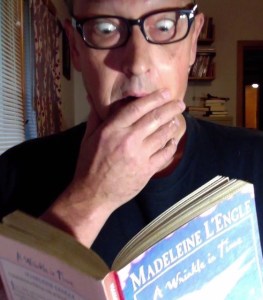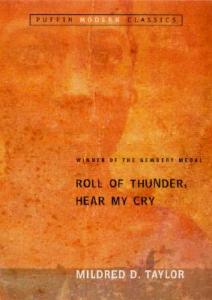
Pete Hautman is the author of more than twenty novels for adults and teens, including the 2004 National Book Award winner Godless, Los Angeles Times Book Prize winner The Big Crunch, and three New York Times Notable Books: Drawing Dead, The Mortal Nuts, and Rash.
His “young adult” novels range from science fiction (The Obsidian Blade) to
mystery (Blank Confession) to contemporary drama (Godless) to romantic comedy (What Boys Really Want.)
With novelist, poet, and occasional co-author Mary Logue, Hautman divides his time between Golden Valley, Minnesota, and Stockholm, Wisconsin. His latest books are the YA novel Eden West, the story of a boy growing up in an isolated doomsday cult in Montana, and the middle-grade novel The Forgetting Machine a sci-fi comedy about, among other things, censorship in the age of ebooks.
From IndieBound: People all over Flinkwater are losing their memories and it’s up to Ginger to figure out what’s going on in this sequel to the quirky, dryly funny (Booklist) The Flinkwater Factor. Absentmindedness in Flinkwater, a town overflowing with eccentric scientists and engineers, is nothing new. Recently, however, the number of confused, forgetful citizens has been increasing, and no one seems to know why. Ginger Crump figures it’s none of her business. She has her own problems. Like the strange cat that’s been following her around a cat that seems to be able to read. And the report for school due Monday. And the fact that every digital book in Flinkwater has been vandalized by a fanatical censor, forcing Ginger to the embarrassingly retro alternative of reading books printed on dead trees. But when Ginger’s true love and future husband Billy Bates completely forgets who she is, things suddenly get serious, and Ginger swings into action.
What’s your favorite thing about middle-grade fiction (as a reader or a writer)?
There is an openness, an innocence, a hopefulness in middle-grade characters (and readers) that I like. The characters are less self-conscious, less brittle, and more about who they are rather than who they want to become.
How is writing middle-grade fiction different from writing for young adults, or “old adults?”
I get to tap into my goofy side—that part of me that enjoys scatalogical and banana peel humor. My middle-grade characters and I are not constantly striving to be cool. “Also, I get to use lots of adverbs,” he said adverbially.

Which do you prefer to read, digital books or dead trees?
I love paper books. I love the way they feel, the way they smell, and the sound of a turning page. But they do take up a lot of space, so I do about half my reading on my iPad. I like the search function on ebooks, and that you can adjust the font size and page brightness. I guess you could say I LOVE dead tree books, but I find digital books to be quite useful.
If your dogs could talk (as some of the animals do in Flinkwater), what would they say?

My dogs are quite small and very talkative. They have an assortment of barks, whines, and growls that I translate as, “Feed me, let me in, feed me, let me out, feed me, hold me, feed me, play with me, feed me.” But who knows—maybe they are asking me deep questions about the meaning of life.
If you could use a real-life REMEMBER system (without forgetting anything), what would you download into your brain?
People’s names. I’m always forgetting names, or calling people the wrong name. It’s embarrassing, and rude.
I enjoyed the “Present or Future” section at the end. Can you tell us what prompted you to add that, and to change it from the “Science, Sciency, or Fantasy” section in THE FLINKWATER FACTOR?
“Science, Sciency, or Fantasy” seemed, in retrospect, a bit fuzzy to me. For example, a hundred fifty years ago the idea of Jules Verne’s Journey to the Center of the Earth might have seemed “sciency,” but today it looks more like fantasy. And self-driving cars once looked like fantasy, but today they are current technology. So I went with “Present or Future,” because things that seem like fantasy today might be reality in fifty or a hundred (or a hundred thousand) years.
What kind of research did you do to get the science (both present and future) right?
I try to keep up with scientific and technological advances, so a lot of it I already knew. But I did have to read up on antigravity and drones and maglev trains. One thing that surprised me was looking into bookless libraries—I thought they were “future,” but it turns out we already have some.
Last month, during Banned Books Week, you spoke out about censorship, which was also an important part of the plot of THE FORGETTING MACHINE, with interesting twists on the role of gatekeepers and digital media. Why did you choose CHARLOTTE’S WEB as a target for censorship in the story?
Mostly because it seemed like an unlikely target for censors. I wanted Mr. and Mrs. Tisk to challenge a book that no reasonable person could object to, and CHARLOTTE’S WEB fit the bill.
If there was one single thing that you wanted readers to get from THE FORGETTING MACHINE, what would it be?
A few laughs, a few questions, and the desire to pick up another book. Oops, that’s not a single thing. Let’s go with laughs. To me, the most important thing is that a book be entertaining.
Will we be seeing more of Ginger Crump and her buddies in future books?
I hope so! I’m taking a break from Flinkwater to work of a couple of other middle-grade novels. One is about eating contests, the other is a sort of ghost story.
What other books do you recommend to readers who enjoyed THE FLINKWATER FACTOR and THE FORGETTING MACHINE?
THE REINVENTION OF EDISON THOMAS is pretty good. I can’t remember who wrote it. I’m terrible with names.
What advice do you have for someone who wants to write middle-grade fiction?
Embrace your inner child—the one you’ve been suppressing for years. The one who bursts into laughter at inappropriate moments, who asks the wrong questions, who puts her shirt on backwards, who tells silly jokes, who burps. Let your characters be kids. Do not preach. Use adverbs.
Pete is giving away one copy of THE FORGETTING MACHINE (U.S. only, please). Enter here:


























